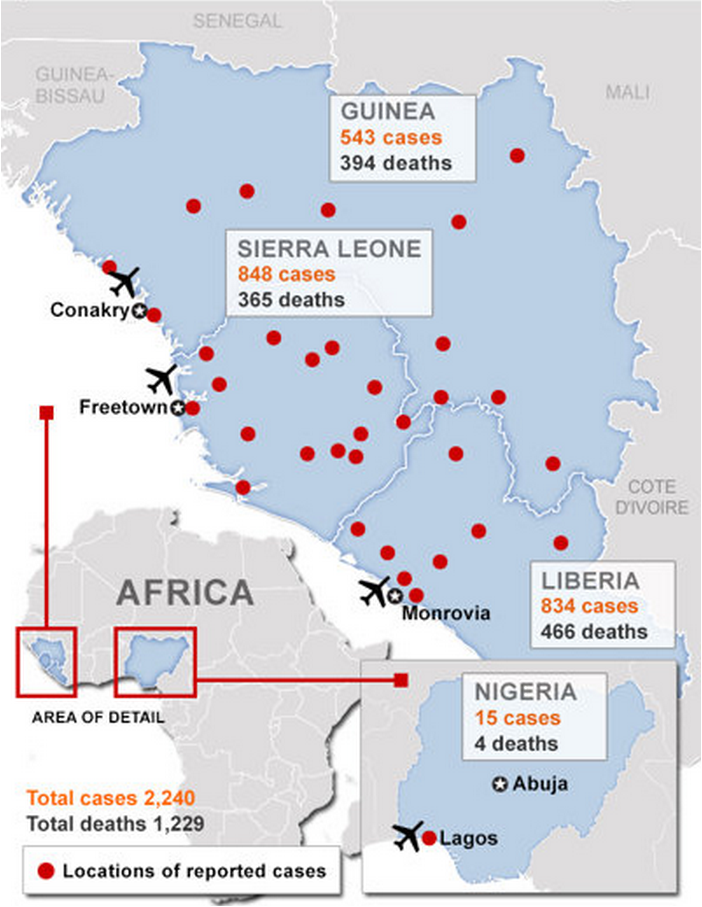Aug 22 2014
What’s The Harm – Ebola Edition
 A common defense of implausible treatments is the question – “what’s the harm.” In other words, implausible therapies might help and can’t hurt, so there is no harm in trying. Is this a valid argument, however?
A common defense of implausible treatments is the question – “what’s the harm.” In other words, implausible therapies might help and can’t hurt, so there is no harm in trying. Is this a valid argument, however?
In trying to assess which side of a controversy has the better position I look toward logic and evidence. Evidence is critical, of course, but in fields outside my expertise I have to rely upon experts to interpret that evidence and put it into a broad and deep scientific context. In controversies, often the data itself is not the core issue, but which data to trust and how to interpret that data.
Therefore, when evaluating various controversial positions, it is very helpful to determine which side has the better arguments. If there is a dramatic asymmetry with one side relying heavily on logical fallacies, that is often very telling. Further, on any particular point you can follow the exchange through to completion and see which side ultimately has the better position.
For example, creationists argue that evolution violates the second law of thermodynamics which states that in any system entropy should increase. Scientists counter that the second law only applies to closed systems and the Earth is an open system, receiving energy from the sun. Creationists then counter that the universe is a closed system and so entropy should be increasing in the universe. Scientist counter further that entropy is increasing in the universe but this does not preclude local decreases in entropy where energy is available, such as the biosphere of the Earth. Creationists then respond by changing the subject. In other words – they have no response. They are wrong and have lost the argument.
Creationists have essentially lost every argument in this fashion, but they continue to use discredited arguments because that is all that they have. I chose a deliberately very asymmetrical issue to illustrate the point.
The same asymmetry exists in the controversy between science-based medicine and so-called alternative medicine (CAM), in my opinion. CAM proponents have lost every major argument, but they continue to use them because that it all that they have. One of those argument is “what’s the harm?”
I discuss this issue at length in this article on Science-Based Medicine. The quick version: delayed effective treatment, false hope, lost opportunity, using limited resources, instilling distrust in mainstream medicine and bizarre notions of health, disease, and science. Oh, and at times there is direct physical harm.
Even CAM modalities presented as entirely safe, such as acupuncture, have documented risks and adverse events. One such risk is infection, which is largely due to the fact that acupuncturists rarely use proper antiseptic technique (have you ever seen a picture or video of an acupuncturists wearing gloves?). Why don’t they use proper technique? Probably because they are not operating within a science-based and ethical system of medicine. Don’t expect science-based precautions in a magic-based practice.
This leads us directly to the specific topic of this article – it has been reported to AFP (Agence France-Presse) that the current Ebola outbreak spread from Guinea into Sierra Leone, resulting in 365 Ebola deaths so far, through the actions of one herbalist.
The herbalist lived in the remote eastern border village of Sokoma. She claimed that she could cure Ebola with her medicine, prompting infected patients to travel from Guinea to receive her treatment. Of course, her treatments were worthless. But further, she apparently did not practice isolation precautions. Ebola patients traveling to her clinic spread Ebola to Sierra Leone. The herbalist herself caught Ebola and died from the virus. At her funeral, further people were infected.
Sierra Leone is now in the middle of a serious Ebola outbreak, overwhelming their hospital resources and resulting in the death of health care workers among many others.
Even if her herbal drugs were directly harmless, her unscientific practice was not.
This is just one more example of the harm that injecting magical thinking into medicine can cause. This gets filed along with chiropractors and naturopaths who oppose vaccination, acupuncturists who do not practice antiseptic technique, CAM proponents who stigmatize standard cancer treatment, those who deny the reality of mental illness, vague fears of toxins that lead to opposition to fluoridation, communities without wifi or cell phones, and countless other examples.
Belief in magic and opposition to science and reason is endlessly mischievous and pernicious.






